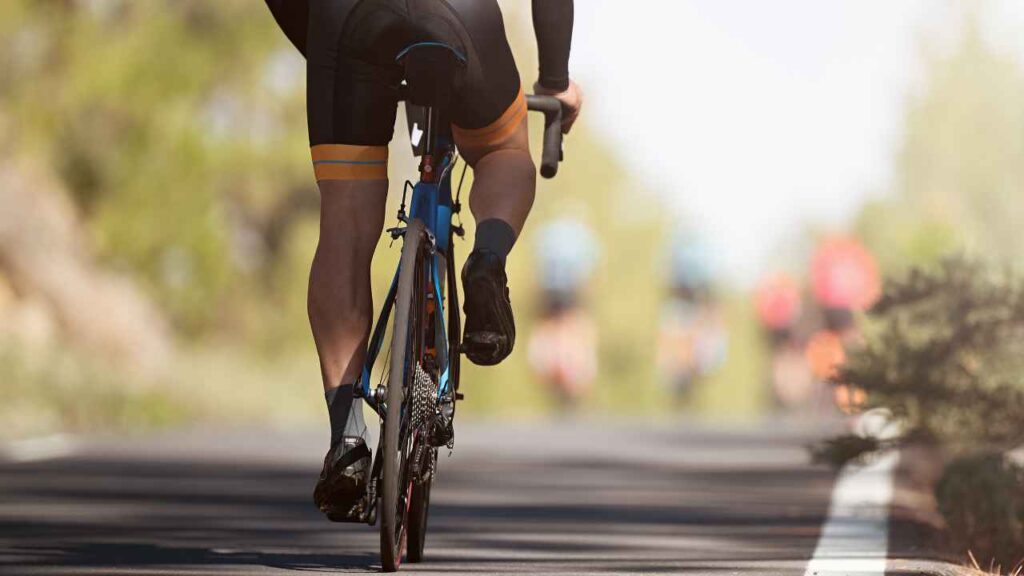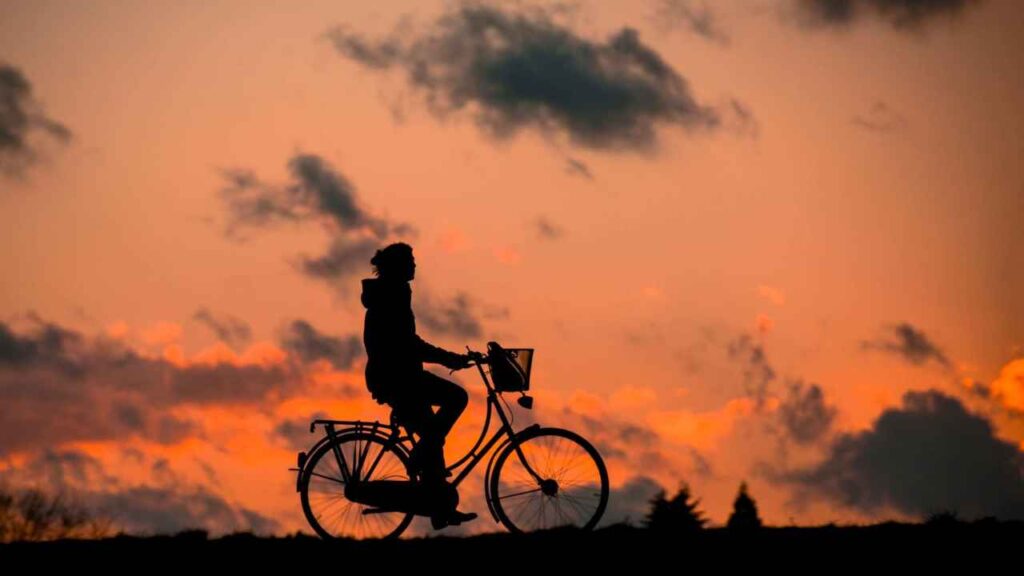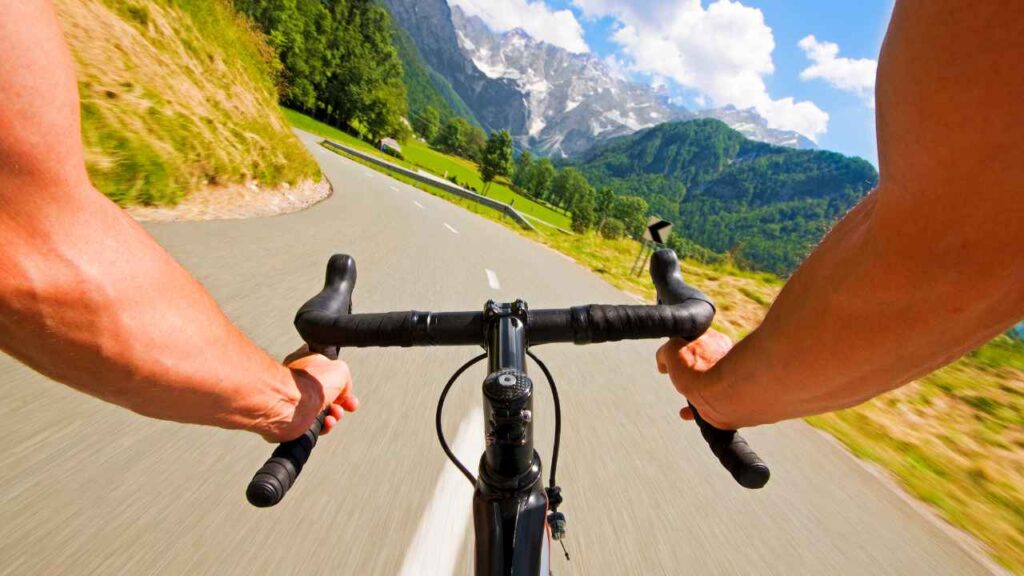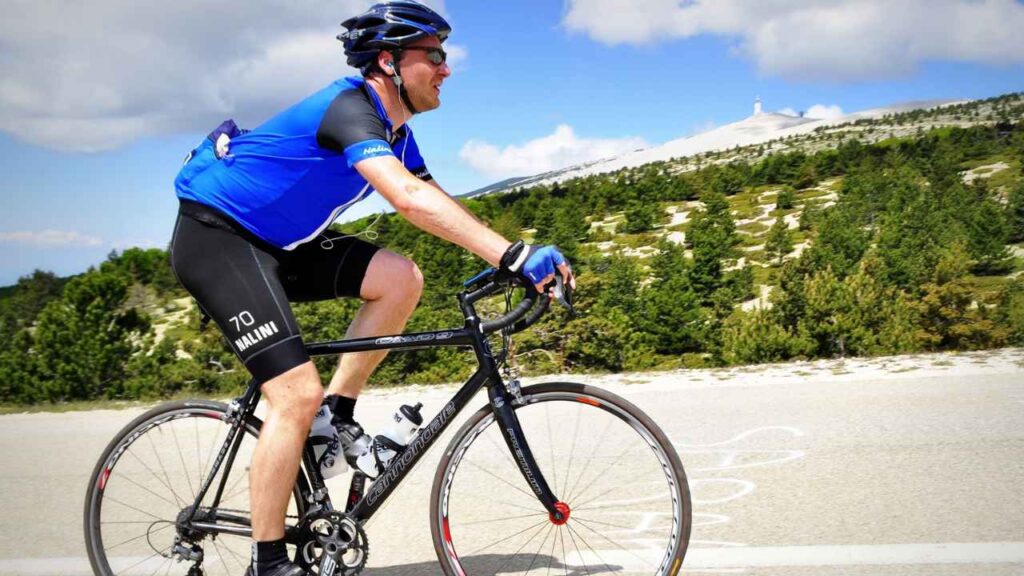
France is a dream destination for cyclists. With its breathtaking landscapes, challenging terrain, and cycling-friendly culture, it’s no wonder that France is a favourite among cycling enthusiasts. From the Loire Valley’s rolling hills to the Alps’ rugged terrain, France offers some of the best cycling routes in the world. In this article, we’ll take a closer look at the top cycling routes in France, providing tips on where to go, what to see, and how to make the most of your cycling adventure.
Table of Contents
Why cycle in France?

France has a long-standing reputation for being a paradise for cyclists, and rightly so. With over 17,000 km of designated cycling paths, the country offers an excellent network of cycling routes for all types of cyclists. From the Loire Valley’s rolling hills to the Alps’ rugged terrain, France is a diverse country with something to offer to every type of cyclist. This article will explore why France is a must-do for every cyclist.
A well-established network of cycling routes
One of the main reasons why France is a must-do for every cyclist is its well-established network of cycling routes. The country has invested heavily in developing cycling infrastructure, which includes designated cycling paths, bike lanes, and cycle-friendly roads. The cycling paths are well-maintained and marked, making it easy for cyclists to navigate and explore the country’s scenic routes. The cycling routes in France cater to all types of cyclists, from beginners to experienced cyclists, and cover a wide range of distances and terrains.
Cycling-friendly culture
France is known for its cycling-friendly culture, which is evident in how motorists and cyclists share the roads. Cyclists are given priority on the roads, and motorists are courteous and respectful towards cyclists. This makes cycling in France a safe and enjoyable experience. Moreover, cycling is a popular sport in France, and you will find many cycling enthusiasts on the roads, making it a social activity.
A diverse range of landscapes
France is a diverse country that offers a range of landscapes, from the Loire Valley’s rolling hills to the Alps’ rugged terrain. This makes it an ideal destination for cyclists of all abilities. You can choose from various cycling routes, each offering a unique experience. Whether you prefer flat terrain or challenging climbs, France has it all.
Exploring the Loire Valley
The Loire Valley is a popular cycling destination in France, and for a good reason. The region is home to some of France’s most beautiful chateaux and vineyards, making it a scenic cycling route. The cycling paths are well-maintained and marked, and you can choose from a range of cycling routes depending on your fitness level.
Cycling in the Alps
If you are an experienced cyclist looking for a challenge, cycling in the Alps is a must-do. The Alps offer some of the most challenging climbs in the world, and the scenery is breathtaking. You can choose from various cycling routes, each offering a unique experience. However, cycling in the Alps requires preparation and training, as the climbs are steep and challenging.
Discovering the French Riviera
The French Riviera, also known as the Cote d’Azur, is a beautiful stretch of coastline in the south of France. The region offers a scenic cycling route with stunning views of the Mediterranean Sea and the surrounding hills. The cycling paths are well-maintained, and you can choose from various cycling routes depending on your fitness level. You can also take a break from cycling and explore the beautiful beaches and charming towns.
The best time to cycle in France
The best time to cycle in France depends on the region you plan to visit. Generally, the best time to cycle in France is from April to October, when the weather is mild and the cycling paths are in good condition. However, some regions, such as the Alps, may have snow and ice during winter, making it difficult to cycle. It is also essential to check the weather forecast before you plan your cycling trip.
Safety tips for cycling in France
Cycling in France is generally safe, but it is essential to take precautions to ensure your safety. Always wear a helmet, and make sure your bike is in good condition before you start your cycling trip. Be visible to motorists by wearing bright clothing and using lights and reflectors. Follow the traffic rules and be courteous to other road users. It is also essential to carry a map, water, and snacks with you.
Preparing for your cycling trip to France
Before you start your cycling trip to France, it is essential to prepare adequately. Research the region you plan to visit and choose a cycling route that suits your fitness level. Ensure your bike is in good condition and pack the necessary gear, such as a helmet, cycling shoes, and gloves. Book your accommodation in advance and plan your itinerary to make the most of your trip.
What to expect on a cycling trip in France
A cycling trip in France is a unique experience that offers a combination of scenic routes, cultural experiences, and delicious cuisine. You can expect to cycle through picturesque villages, rolling hills, and stunning countryside. You will also have the opportunity to taste the local cuisine, visit charming towns, and learn about the local culture. Cycling in France is a social activity, and you will have the opportunity to meet other cyclists and share your experiences.
Essential gear for cycling in France

Cycling in France can be an incredible experience, whether exploring the countryside or the cities. You need the right gear to make the most of your cycling adventure. This article will review the essential gear you need for cycling in France. We’ll cover everything from the bike to the navigation system, and ensure that you have a safe and enjoyable experience. So, let’s dive in!
Getting the Right Bike
Before embarking on your cycling adventure in France, you need to ensure that you have a high-quality, well-maintained bike. A road bike is a great option if you plan to cycle through the cities. Road bikes are lightweight, have thin tires, and are designed for speed. On the other hand, if you’re planning on cycling through the countryside, a touring bike or a hybrid bike is a better choice. These bikes are more versatile and can handle different terrains.
Protecting Your Head: The Helmet
A helmet is one of the most important pieces of gear you need for cycling in France. A helmet can protect your head in a crash or a fall. When choosing a helmet, ensure that it fits snugly and is comfortable. The helmet should also meet the safety standards set by the European Union.
Clothing: Cycling Shorts and Jersey
Cycling shorts and a jersey are essential gear for cycling in France. Cycling shorts are designed to provide comfort during long rides. They have padding in the seating area and are made from breathable material to prevent chafing. Cycling jerseys are also made from breathable material and have pockets to store essentials like a phone, keys, and snacks.
Footwear: Cycling Shoes and Pedals
Cycling shoes and pedals are essential gear for cycling in France. Cycling shoes are designed to be comfortable and efficient. They have stiff soles that transfer power from your legs to the pedals, so you can cycle longer without feeling tired. Pedals with clips or straps ensure that your feet are securely attached to the pedals, which can improve your pedalling efficiency.
Padded Gloves: Protect Your Hands
Cycling gloves with padding are an essential piece of gear for cycling in France. They protect your hands from blisters and provide a better grip on the handlebars. Look for gloves that have padding on the palms and are made from breathable material.
Protection From The Sun: Sunglasses and Sunscreen
Cycling in France can expose you to harsh UV rays. It would help if you had sunglasses with UV protection to protect your eyes from the sun. Sunglasses also protect your eyes from wind, dust, and debris. Additionally, you need to protect your skin from the sun. Apply sunscreen with at least SPF 30 to exposed skin.
Hydration: Water Bottle and Hydration System
Staying hydrated is essential when cycling in France, especially during the hot summer months. A water bottle or hydration system is necessary to ensure that you stay hydrated throughout your ride. Look for a water bottle or hydration system holding at least 500ml of water.
Repairs: Repair Kit and Spare Parts
You should always be prepared for a mechanical issue when cycling in France. A repair kit and spare parts are essential gear for cycling in France. Your repair kit should include a spare tube, tire levers, a multi-tool, and a pump. Additionally, you should carry spare parts like brake pads and cables.
First Aid Kit: Be Prepared
Accidents can happen when cycling in France. A first aid kit is an essential gear to have in an emergency. Your first aid kit should include bandages, antiseptic cream, pain relief medication, and a whistle.
Navigation: The Right System
When cycling in France, it’s important to have a navigation system to help you find your way. Several options include GPS devices, smartphone apps, and printed maps. A GPS device is popular because it’s easy to use and provides turn-by-turn directions. Smartphone apps like Google Maps and Strava can also be useful, but make sure you have a good data plan or offline maps downloaded. Finally, printed maps can be a reliable backup if your electronic device runs out of battery.
Other Considerations
Aside from the essential gear mentioned above, there are a few other things to consider when cycling in France. These include:
- Clothing layers: The weather in France can be unpredictable, so wearing layers that you can easily remove or add is a good idea.
- Bike lock: You’ll need a bike lock to secure your bike when you’re not riding it.
- Lights: If you plan on cycling at night or in low-light conditions, you’ll need lights for your bike.
- Bell: A bell is a legal requirement in France and is essential for alerting pedestrians and other cyclists.
Planning your cycling trip to France

Are you planning a cycling trip to France? With its scenic routes, picturesque landscapes, and rich culture, France is a paradise for cyclists. However, planning a cycling trip requires more than packing your bags and hitting the road. From choosing the right time of the year to selecting the best routes and accommodation, several factors must be considered. This article will provide tips and tricks to plan your cycling trip to France, ensuring a memorable journey.
Choosing the Best Time to Cycle in France
France offers a diverse range of weather conditions throughout the year. Therefore, choosing the right time of the year to cycle in France is essential. The best time to cycle in France is from April to October when the weather is mild and dry. During these months, you can enjoy pleasant temperatures, blue skies, and low rain chances.
Picking the Best Cycling Routes in France
France offers many cycling routes, catering to all difficulty levels and preferences. Whether you’re a seasoned cyclist or a beginner, you can find a route that suits your needs. Here are some of the best cycling routes in France:
The Loire Valley
The Loire Valley is a UNESCO World Heritage Site offering some of France’s most scenic cycling routes. The region boasts charming castles, lush vineyards, and picturesque landscapes.
The French Alps
The French Alps offer some of the most challenging cycling routes in France. The region is famous for its steep climbs, hairpin turns, and breathtaking views. The French Alps should be on your bucket list if you’re a seasoned cyclist.
Provence
Provence is a region famous for its lavender fields, olive groves, and quaint villages. Cycling through Provence offers a delightful experience with its stunning landscapes, picturesque towns, and delicious cuisine.
Tips for Choosing the Right Accommodation
Choosing the right accommodation is crucial for a comfortable and enjoyable cycling trip. Here are some options to consider:
Hotels
France boasts a diverse range of hotels catering to all budgets and preferences. You can find a hotel that suits your needs from luxury hotels to budget-friendly options.
Bed and Breakfast
Bed and breakfasts are excellent for those who prefer a homely and authentic experience. You can enjoy homemade breakfast, personalized service, and a cosy ambience with bed and breakfast.
Camping
Camping is an excellent option for budget-conscious travellers who want to experience nature up close. France offers a plethora of campsites catering to all levels of comfort and preferences.
Tips for Planning Your Cycling Trip
Here are some tips to ensure a smooth and enjoyable cycling trip to France:
Plan your route carefully.
Before embarking on your cycling trip:
- Plan your route carefully.
- Consider the distance, the terrain, and the difficulty level.
- Research the region’s cycling laws and regulations.
Invest in quality gear.
Investing in quality cycling gear is crucial to ensure a comfortable and safe journey. Pack comfortable cycling clothes, a helmet, gloves, and shoes.
Stay hydrated
Cycling can be strenuous, especially during hot weather conditions. Make sure to stay hydrated by carrying a water bottle and drinking regularly.
Take breaks
Taking breaks is crucial to prevent exhaustion and injuries. Take breaks regularly, stretch your muscles, and enjoy the scenery.
Tips for Cycling in France

France is a fantastic destination for cycling enthusiasts. With a diverse range of landscapes, picturesque towns, and incredible food, it’s no wonder that so many people choose to explore this country on two wheels. However, cycling in France can be challenging, particularly for those unfamiliar with the country’s roads and customs. In this article, we’ll explore some essential tips for cycling in France, ensuring you have an enjoyable and safe experience.
Observe Traffic Laws and Safety Rules
French traffic laws are similar to those in other European countries. However, it’s important to be aware of the specific rules that apply to cyclists. For example, cyclists must use bike lanes where they are available and ride on the right side of the road. Using lights when cycling at night or in low-light conditions is also mandatory.
Additionally, it’s crucial to follow general safety rules, such as wearing a helmet, using appropriate hand signals, and avoiding distractions while cycling.
Always Wear a Helmet
Wearing a helmet while cycling is mandatory in France for children under 12. However, it’s recommended that all cyclists wear a helmet to protect against head injuries in the event of an accident.
Bring a Repair Kit and Spare Parts
Flat tires and mechanical problems can happen at any time, so bringing a basic repair kit and spare parts such as inner tubes and a tire pump is essential. Learning basic bike maintenance skills is also a good idea before embarking on a long cycling trip.
Stay Hydrated and Bring Snacks
Cycling can be thirsty work, particularly during warm weather. Carrying enough water to stay hydrated and bringing snacks to keep your energy levels up during long rides is essential.
Be Respectful of Other Cyclists and Motorists
French drivers generally respect cyclists, but it’s important to be aware of your surroundings and give other road users enough space. Additionally, it’s important to be respectful of other cyclists by not blocking bike lanes or cycling paths.
Learn Some Basic French Phrases
While many French people speak English, it’s helpful to know some basic French phrases to communicate with locals and navigate unfamiliar areas. Basic phrases such as “Hello,” “Thank you,” and “Where is the nearest bike shop?” can go a long way.
Dress Appropriately for the Weather
France’s weather can be unpredictable, particularly in the mountains or coastal regions. Packaging appropriate clothing for the conditions is essential, including rain gear, warm layers, and sun protection.
Be Prepared for Varying Terrain and Weather Conditions
France’s diverse landscapes offer incredible cycling opportunities, but it’s important to be prepared for the varying terrain and weather conditions. For example, the Pyrenees and Alps offer challenging climbs and unpredictable weather, while coastal regions can be windy.
Take Breaks and Enjoy the Scenery
Cycling in France is as much about the journey as the destination. Take the time to stop and appreciate the scenery, visit local attractions, and enjoy the culture and cuisine. Taking regular breaks can also help prevent fatigue and injuries.
Faq
Yes, it’s highly recommended to have travel insurance that covers cycling-related accidents and injuries.
Yes, many towns and cities

